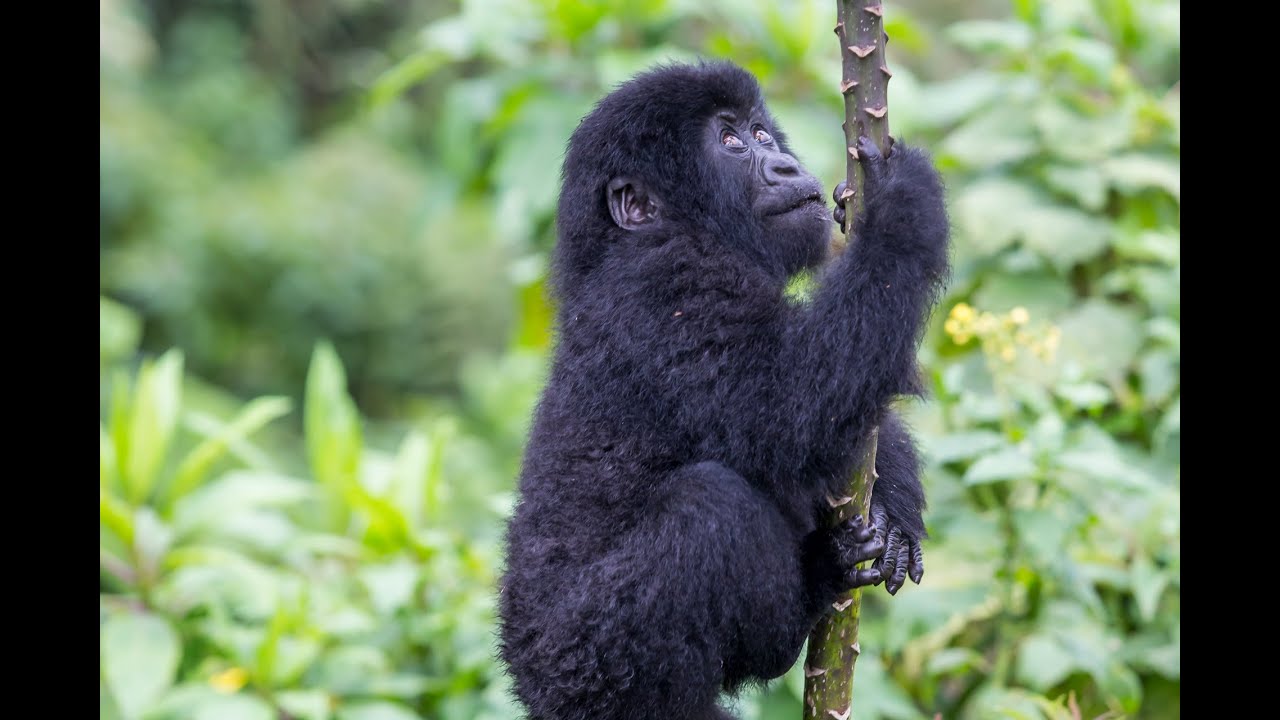FAQs About Gorilla Trekking in Rwanda and Uganda Frequently Asked Questions (FAQs) about gorilla trekking…

How Do Mountain Gorillas Play?
How Do Mountain Gorillas Play?
Mountain gorillas are close relatives to mankind, sharing about 98.2% DNA and for this reason, many of the things we do are noticeable among them. Interestingly, playing is an important and undeniably common part of Mountain Gorilla lives like it is with humans. It is also common among juveniles and baby gorillas as they begin making their first steps away from their biological mothers. The beauty about this is that majority of the gorilla families have many baby gorillas that normally act as playmates for each other.
The crucial part of playing is wrestling, although they also hug each other, bite, throw each other, hold on to each other, thrust, and hit their playmate in addition to pulling or getting pulled to the ground. When wrestling becomes more intense, louder, and more frequent accompanying vocalizations in form of panting, laughing, moaning, and grunting will be heard or noticed.
These games are more common among youngsters than any other age group within the gorilla family. However, Adult females also play, although it is done less frequently and with another adult or their babies. For the mountain gorillas, paying is common around the midday rest period and is crucial in the young gorillas’ lives as well as integration into their individual families. With playing, young gorillas become familiar with each member and get accepted as part of the family. Additionally, they get acquainted and practice different communication as well as behavior patterns that are not intuitive. For this reason, play is a learning process (especially when it comes to interacting with group members) in addition to its incredible social value since it reinforces bonds that may be advantageous in the future. Youngsters learn how to navigate their natural environment while growing as well as working out how to deal with their improving strength.
For larger gorilla families like Susa A and Pablo in Volcanoes National Park of Rwanda, young gorillas change playmates all the time and their playing sessions usually last for longer periods of time. Becoming adventurous is also common among them, and this is in form of hanging from tree vines and branches, rolling down hills, and running around trees. This is a sight to behold and unmissable during gorilla safaris. Park Rangers who encounter and monitor these Great Apes from time to time always observe them tickling each other, wrestling, and surprisingly also spinning. Most of these actions usually bring about long and loud vocalizations that seem like laughing.
For gorilla safaris, watching these Giant Apes playing is something worth a million photos and it is hard not to smile and sometimes laugh while watching these Giant Apes playing and having the best time of their lives.
Where to watch the mountain gorillas
Mountain gorillas aren’t found in any other places other than Bwindi Impenetrable and Mgahinga Gorilla National Parks in Uganda, Virunga National Park in the Democratic Republic of Congo, and the renowned Volcanoes National Park in Rwanda.
What is the perfect time to see the Mountain gorillas?
There are unmatched opportunities of seeing mountain gorillas in their natural habitats that are always open all year round. The perfect months for gorilla treks are December until February and June through September. It is in these months that forest trails are mud-free because of reduced rains and most of the jungle is accessible for walks.
The wet months-March to May and October to early December experience heavy rains that make soil lose and forest trails muddy or slippery. However, the advantages of these months include the fact that travelers can enjoy clearer views, perfect photography and discounted rates for rooms
